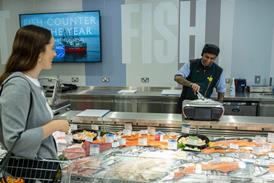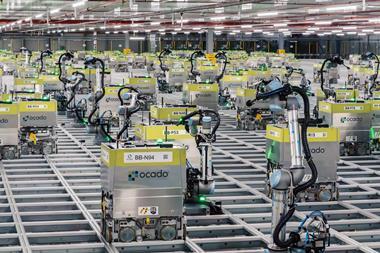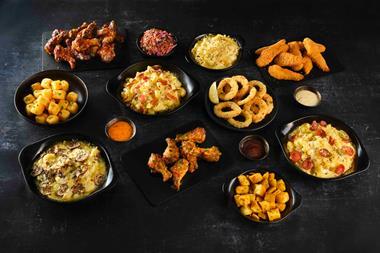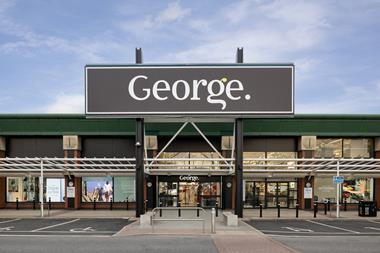Who can resist deodorant when it gives you ‘unlimited powers of seduction’.....
Deodorants is still by far the biggest category in male grooming, worth £226m and commanding 41.8% share of the market, says TNS [52 w/e May 22, 2005]. It is also showing strong growth of 4.5% year-on-year as more consumers buy more often.
According to research by BMRB, use of deodorants among men has grown steadily, increasing from 73% of the UK male population using it in 1987 to 89% in 2005.
James Griffin, category manager for deodorants at Unilever Home and Personal Care, which owns the Lynx brand, says: “Lynx, launched in 1984, cornered the market. Before the late 1970s, it was common for teenage boys not to use deodorant at all.”
According to Griffin, Lynx continues to grow through product development. He says Unilever runs a policy of constantly upgrading its Lynx offerings, adding and removing fragrances to keep consumer choice high.
For example, while its number one fragrance, Africa, remains on the shelves, others such as Apollo and Atlantis have made way for new lines. “The reason Lynx has stayed at the forefront is that new fragrances are always coming through,” says Griffin.
The brand’s main target is 18-year-olds although Griffin says people up to the age of 40 still buy it “because they want to be 18 years old again”.
One of Unilever’s latest products is Lynx Unlimited, which it launched in the first quarter of the year, offering ‘unlimited powers of seduction’ with sensual and warm fragrances infused with masculine, clean freshness.
Gillette APD is another key player in the deodorants category with its Gillette and Right Guard brands. Nicola
Roode, Gillette APD senior business manager, says that deodorants, in particular, is one category where new product development is essential to keep brands fresh.
“The men’s deodorant market is particularly full of activity with new product variants, packaging and spray application methods all competing against each other for standout. With such rivalry and consumer demand for constantly up-dated products, brands have to work hard to maintain loyalty.”
Recent innovations from the company include the Total Protection vertical spray
applicator on Right Guard, Right Guard Xtreme and Gillette Series Cool Spray. “We’re very much aware that we need to keep upping our game to keep consumers faithful to our brands. In response to consumer demand,” says Roode.
Unilever is also ringing the changes with its approach to its Sure for Men brand.
The company is building on the masculine image of the brand in order to move it away from its stablemate Sure as men want more differentiation in their deodorant and male grooming lines, says Griffin.
While women do not mind buying a unisex product, men are more reluctant, and so Unilever has tried to create a sporty, macho image.
This has been achieved by a television commercial called Stunt City showing men diving from buildings and hanging on to helicopter skids, and the sponsorship of the recent British and Irish Lions rugby tour of New Zealand.
Despite the unsuccessful outcome of the tour, with the Lions receiving a hammering by the All Blacks, Griffin says the message was successfully conveyed. He adds: “It was a risk and a gamble but the sponsorship was part of our long-term strategy to drive differentiation. We’re pretty pleased with it.”
Deodorants is still by far the biggest category in male grooming, worth £226m and commanding 41.8% share of the market, says TNS [52 w/e May 22, 2005]. It is also showing strong growth of 4.5% year-on-year as more consumers buy more often.
According to research by BMRB, use of deodorants among men has grown steadily, increasing from 73% of the UK male population using it in 1987 to 89% in 2005.
James Griffin, category manager for deodorants at Unilever Home and Personal Care, which owns the Lynx brand, says: “Lynx, launched in 1984, cornered the market. Before the late 1970s, it was common for teenage boys not to use deodorant at all.”
According to Griffin, Lynx continues to grow through product development. He says Unilever runs a policy of constantly upgrading its Lynx offerings, adding and removing fragrances to keep consumer choice high.
For example, while its number one fragrance, Africa, remains on the shelves, others such as Apollo and Atlantis have made way for new lines. “The reason Lynx has stayed at the forefront is that new fragrances are always coming through,” says Griffin.
The brand’s main target is 18-year-olds although Griffin says people up to the age of 40 still buy it “because they want to be 18 years old again”.
One of Unilever’s latest products is Lynx Unlimited, which it launched in the first quarter of the year, offering ‘unlimited powers of seduction’ with sensual and warm fragrances infused with masculine, clean freshness.
Gillette APD is another key player in the deodorants category with its Gillette and Right Guard brands. Nicola
Roode, Gillette APD senior business manager, says that deodorants, in particular, is one category where new product development is essential to keep brands fresh.
“The men’s deodorant market is particularly full of activity with new product variants, packaging and spray application methods all competing against each other for standout. With such rivalry and consumer demand for constantly up-dated products, brands have to work hard to maintain loyalty.”
Recent innovations from the company include the Total Protection vertical spray
applicator on Right Guard, Right Guard Xtreme and Gillette Series Cool Spray. “We’re very much aware that we need to keep upping our game to keep consumers faithful to our brands. In response to consumer demand,” says Roode.
Unilever is also ringing the changes with its approach to its Sure for Men brand.
The company is building on the masculine image of the brand in order to move it away from its stablemate Sure as men want more differentiation in their deodorant and male grooming lines, says Griffin.
While women do not mind buying a unisex product, men are more reluctant, and so Unilever has tried to create a sporty, macho image.
This has been achieved by a television commercial called Stunt City showing men diving from buildings and hanging on to helicopter skids, and the sponsorship of the recent British and Irish Lions rugby tour of New Zealand.
Despite the unsuccessful outcome of the tour, with the Lions receiving a hammering by the All Blacks, Griffin says the message was successfully conveyed. He adds: “It was a risk and a gamble but the sponsorship was part of our long-term strategy to drive differentiation. We’re pretty pleased with it.”














No comments yet